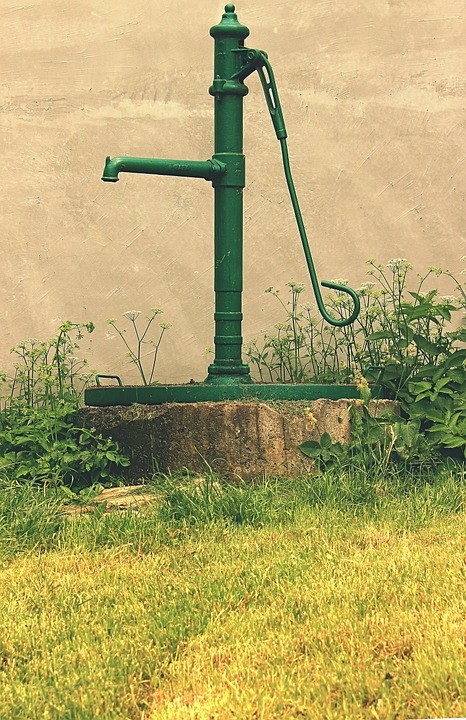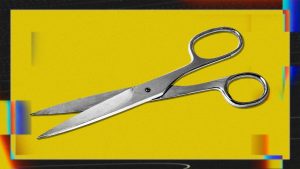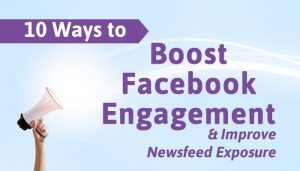— May 9, 2018
Coffee Talk

So this morning I had a coffee with a potential client. He’s actually somebody I met through networking locally and he decided to contact me after reading some of my stuff online and said, “Hey, let’s get together and have a coffee.” And I said, “Sure.”
We discussed his business and learned about what he was doing, what was working, what was not working from a marketing perspective. So let me give you a little backstory: first and foremost his name is Kendall and he’s a chiropractor. Now, if you guys have listened to my podcast or read my blog, you’ve heard me talk about the Blue Ocean Strategy where the red ocean is where all the sharks are feeding and the blue ocean is where less fish are eating.
We start talking about that from a chiropractic standpoint and let’s face it, there are chiropractors in every strip mall. And they do all different kinds of things, right? Most of them are doing back adjustments but pretty much most of them do the same thing, which makes it a very red ocean just to say “I’m a chiropractor.” So, we explored what it is that made him different. And we started talking about how he was doing his current marketing.
Now, what came up in the middle of this was, what’s better for business? How can you make more money by turning on a faucet or by digging a well? Let me give you the context of that phrase.
The Faucet

So a faucet is kind of a red ocean tactic, meaning that you’re going in and you’re paying for the services you’re receiving just like you pay your water company — you go to your faucet and you turn the faucet and the water comes in, right? It’s pretty straightforward. So, that’s what a faucet is: when you stop paying for that faucet, let’s say you forget to pay your water bill, what happens? The water turns off, right?
That’s essentially what Kendall’s doing — he’s paying for Facebook ads and they seem to be working really, really well. But the biggest thing about that is you don’t get to control whether your ads show up on Facebook or not, there’s a false sense of security. If for some reason let’s say your credit card stops working, your ads stop. Let’s say they close your account because somebody complains about something that you posted — not that he would do anything or I would do anything intentionally — but it can happen. Now the bottom line is that you don’t control that asset, that property. So you’re relying on that company to deliver what it promises, right? If you pay for water… you get water out of the faucet. But you don’t control it in the end.
The Well

Now, let’s look at a well. A well is something that you would have to dig — let’s say on your own property. You can’t go over to your neighbor and dig a well on their property, right? I think you might start a big lawsuit. So, you need to dig it in your own property. A well is more of a blue ocean strategy. What that means is there are fewer people fishing there. There are fewer predators in the water eating the same fish that you’re trying to catch.
The bottom line is, digging a well is a heck of a lot more work than it is to have a faucet installed, because usually if you’re going to have a faucet installed you have to hire a plumber, right? So you’re going to pay for the plumber who’s going to run all the piping up to the faucet. Yes, you can change the faucet but the water supply is really controlled by somebody else. In the case of a well, you own that well. If you do it right it will continue to provide water at no additional charge. It comes up from the ground, goes into the well, you could pull out the water anytime you want. When done right it will continue to provide water forever. Hopefully, forever. But the thing is, is you own it. You own that piece of property, you own that well, you own that water. Now, is it as convenient as a faucet? No. You turn a faucet on, water comes out. With a well, you’ve literally gotta go over there with a bucket and pull the water out and then put it into something and bring it into the house, or your shack, or your tent, or whatever it is, but it’s a little bit more work. But the key thing is you own it, you control it, it’s your destiny at your fingertips.
What’s The Difference?

So, that’s the biggest difference between the two things. One is a red ocean strategy where somebody else controls everything about what you’re getting delivered — that’s what buying Facebook ads is. You pay for them, they turn on, you stop paying for them, they turn off. If they don’t like you, they can shut you down. When you have your own well, you control the destiny. So what does that mean in the sense of marketing? Well paying for ads, paying for Google ads, Facebook ads, whatever it is, is one way to do things. And in Kendall’s case, it’s working pretty well, but it may not work forever. Digging a well means that you have to learn all of the principles, which means investing in yourself, educating yourself on how wells work, how to dig a well, how to maintain it, and how to get the water out safely, right? So it takes a little bit more energy and effort, but the bottom line is you own it. It’s something that’s yours that you’ll have forever and ever.

So what exactly do I mean by digging a well? What I mean by digging a well is creating assets, and these assets include your story, your information that you own. In the case of Kendall, I asked him, “What are the things you do to promote?” He says, “Well, I go into businesses and I give presentations.” I said, “Think about this. What if you were to record that on video?” Now you’ve got a video that you can put up on YouTube that you can break into parts and maybe put on your website. That you could put into an email funnel of autoresponders. Somebody signs up and they get video one today and a couple of days later two, three, four, five, whatever it is. Then we take those videos and we convert them to a podcast. Each one of them become an audio file. And then you take those audio files and you have them converted to text. And from that text now you can create new posts on your blog, you can create an ebook, or you could write a complete book with it. That’s what digging a well does but you can see it’s going to take more time, it’s going to take some investment because he’s got to create the presentation, it’s gotta be converted into a couple of different formats, but when it’s done its water in the bottom of that well.
Final Thoughts

So here are three things that you need to think about this concept. Number one, you may have to do both: you may have to have a faucet in your house and a well. Maybe the well water is used to cut down on the faucet. They could work in concert. It’s your choice.
The second concept is, if you give a man a fish he eats for a day, if you teach a man to fish he eats for life. And that’s what my business is built on: b2bteaching people how to fish, not giving them fish. I’m not selling them the fish. I’m giving them the fish, meaning I’m teaching people how to create those assets. So, you need to be willing to invest the time and the resources to learn how to do this because once you learn it you don’t have to keep paying for it. You’ve got the skill and you can repeat it over and over. And I even got a text from a client today saying, “The concepts that you taught me last year I applied this year and the customer has already made more money this year than they did all of last year.” So that means the teachings that I gave them keep giving back.
And then the final thought is, build assets. Everything that we do from blogging to podcasting, to emails, everything should be considered an asset. Think of that as a tool in your arsenal. And think of ways of how you can repurpose it. So are you building a well in your business or just turning on the faucet? Which do you think will make you more money?
I would love to hear your thoughts on this. Comment below and share your thoughts, ideas or questions about showing the concepts presented. Have you had to overcome any of the presented concepts? What worked and what did not live up to expectations? Do you have any ideas or advice you could share?
Business & Finance Articles on Business 2 Community
(39)









